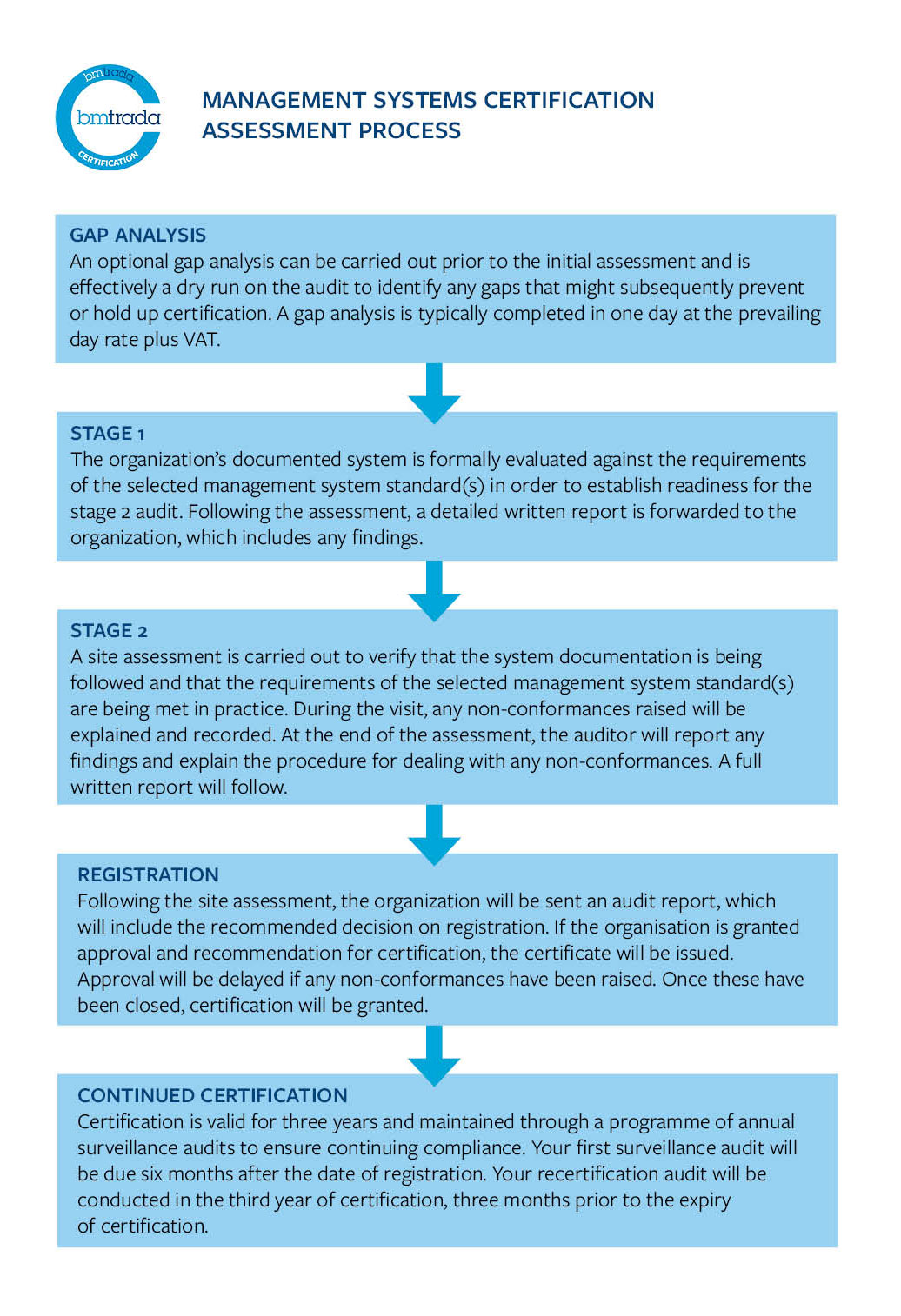Essential certification for companies that work on the UK road network. National Highway Sector Schemes (NHSS) are quality management systems for companies working on the UK road network.
They are based on, and supplement, ISO 9001 with additional requirements specific to highways work.
Any organisation working with the Highways Agency and local authorities needs to be certified to the relevant NHSS scheme to show that are competent to carry out the required works.
The schemes fall into four main categories; fencing, landscaping and vehicle safety restraints; road surfacing and marking; lighting, electronics and corrosion protection; and traffic management.
They were designed to provide an industry benchmark, to to make sure that work is carried out to the highest standards of professionalism, using properly trained staff and with a strong emphasis on health and safety.
National Highway Sector Schemes Certification
We currently offer certification to the following highway sector schemes:
|
National Highway Sector Schemes |
|
|
Family Groups |
NHSS |
|
Fencing |
2A 2B/5B 2C 4 10B |
|
Electrical and land drilling/tunnels
|
8 |
|
Surfacing and SSR |
7 13 16 23 30 |
|
Fasteners and structural steel and coatings
|
19A |
|
Temporary traffic management |
12A/B 12C 12D |
|
Landscaping and natural environment (including ecology)
|
18 |
|
Tunnel management and incident management
|
22 |
Who needs NHSS?
Registration to NHSS is generally considered to be mandatory, or at the very least good practice, for all highways works.
Companies sub-contracting work do not have to be registered, but any sub-contractors must be.
If your company supplies services to the Highways Agency under the Specification for Highways Works (SHW), you must be certified under all the relevant schemes for the work you are carrying out.
The benefits of NHSS
Specifically, NHSS certification will:
-
Provide access to new business through procurement specifications requiring certification as a condition to supply
-
Improve processes resulting in efficiencies and reduced costs
-
Ensure compliance with current legislation and regulation
-
Prove business credentials
-
Provide independent verification by auditors with technical knowledge and experience in the sector.

Our Services

Other Management System Certification
Find out about the other management systems certification schemes that BM TRADA can help you with.
Management System Certification Process
Find out about the management systems certification process.
Certification Process
Find out the process for gaining certification for your organization.
